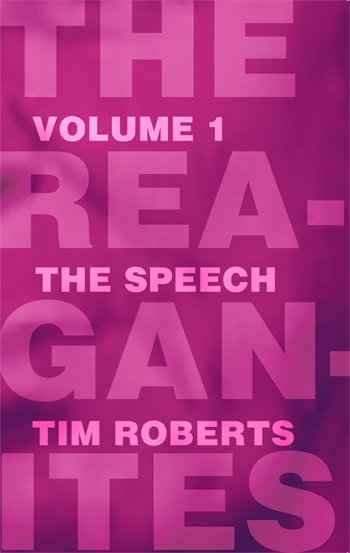Mickey Hart, of the Grateful Dead, once quipped, “If you remember the Sixties, you weren’t there.” In Transcendence, Charles Rammelkamp may have been a tad too young to recall, or not, the Sixties, but he certainly nails the early Seventies, when we still thought drugs (and of course rock music) might help us change the world for the better. Take a (real and metaphor) trip down memory lane, to dropping acid, smoking dope, and transcendental meditation. Experience it all again: the giggle fits, the munchies, our parents’ (and our) dread we’d turn into vegetables, but hell we were young and what was life for, but crazy experiments? A marvelous read, through and through.
Robert Cooperman, author of Reefer Madness and the award winning In the Colorado
Gold Fever Mountains
Transcendence is both hilarious and poignant. Many of the poems include references to drug-fueled experiences. The book includes such intriguing titles as "The First LSD Trip in America" and "At the Recreational Marijuana Dispensary in Ann Arbor." You'll both laugh and flinch when you read the stories, and may well wonder how the writer survived his experiences.
Leah Mueller, author of Misguided Behavior, Tales of Poor Life Choices
From the recounting of personal experiences to the fictional reporter Glen Webber’s investigation into the very real death of a CIA agent during the murky, secret CIA “mind control” programs, and Timothy Leary’s experiments, Transcendence is a truly mind-blowing collection. Transcendental, indeed.
Roman Gladstone, author of A Crisis of Faith
Looking back, only in the 60’s could someone like Timothy Leary be considered a guru. Rammelkamp takes us on a personal, and a historical tour, of the early days of the psychedelic age. He exposes some of the laugh out loud funny urban legends, to how the CIA used LSD as a mind control element with disastrous results. This book is a real trip, man!
Alan Catlin, Misfit Magazine editor
There are good trips and bad trips. And then there is Transcendence. In poem-narratives, Charles Rammelkamp explores the psychedelic movement in America through the voices of those transformed by it.
Jack Skelley, author of Interstellar Theme Park
Reading Rammelkamp’s work over the years, I’ve long admired his vernacular version of the neglected practice of writing poetry as a way to investigate history. It’s not common these days to speak of poetry as being “about” something, but his books lend themselves to this.
American Zeitgeist is a collection of astute riffs on the career of the forgotten populist statesman William Jennings Bryan, done from the inside, so to speak, in the voices of people close to him.
Jack Tar’s Lady Parts brings to life the almost unknown voices of women who took to the high seas (often disguised as men) in British ships during the great age of sail.
Me and Sal Paradise compiles conversational episodes from the widespread hitchhiking culture of the early Seventies. Done with a light touch and insouciantly inconclusive, these snapshots have the authentic feel of those forgotten days when everyone was “on the road.”
Transcendence, Rammelkamp’s new, wide-ranging collection, is a book I’ve been much looking forward to, concerned as it is with multiple manifestations of psychedelic culture. This topic is ideally suited to his gift for deftly conveying large social issues and historical movements through the quirks and intuitions of a subjective viewpoint.
He reminds us of iconic details like “chromosome damage,” smoking banana peels, Art Linkletter’s daughter, “flashbacks”—all the early worries and propaganda about LSD. Leary, Nixon, JFK, Reagan, the Beatles, Ram Dass, Grace Slick, Huxley, theologians Cox and Tillich, and many more characters put in appearances.
A well-researched and disturbing section, told in the words of a fictional PI, burrows into the suspicious death of Frank Olson, a victim of the CIA’s clandestine mind-control drug experiments. Another series wryly recounts attempts at “mindfulness” through yoga, with the ever-present distractions of sex.
Transcendence avoids the trap of trying to describe psychedelic experience, and also the tempting but empty reflex of satire. Though well supplied with humor, the book ends on the note of one character’s simple affirmation:
The whole “me” thing just dropped out,
like a stone in a canyon,
into a more timeless, formless now.
The trip kick-started
a whole new approach to life.
Now I’m – I’m present.
Don’t know how else to say it.
This is a refreshingly casual, unportentous book to add to the shelf of essential works about the Sixties.
—Thomas Frick is an award-winning art critic, author of The Iron Boys, and editor of The Sacred Theory of the Earth.
Charles Rammelkamp is Prose Editor for BrickHouse Books in Baltimore, where he lives with his wife, Abby. The two are retired from federal government service. Rammelkamp is the author of several collections of “historical” or “biographical” poetry sequences, written in dramatic monologue form, including Fusen Bakudan (Time Being Books), about World War Two Japanese balloon bombs and leper colony missionaries in Vietnam; Mata Hari: Eye of the Day (Apprentice House), about the life and career of the World War I femme fatale spy; American Zeitgeist (Apprentice House), which deals with the populist politician and Scopes Trial buffoon, William Jennings Bryan; Catastroika (Apprentice House), another collection of dramatic monologues in the voices of Maria Rasputin, the mad monk’s daughter, who escaped Russia after the Revolution and became a lion tamer for Ringling Brothers, and a fictional Jewish character, Sasha Federmesser, who likewise escapes and immigrates to Baltimore. A chapbook of poems about female sailors in the British Royal Navy during the 17th and 18th centuries, Jack Tar’s Lady Parts (Main Street Rag Press), is also written in this style. Other poetry collections include Ugler Lee and The Field of Happiness (Kelsay Books) and Mortal Coil, a chapbook published by Clare Songbirds.
Book Information:
· Paperback: 116 pages
· Binding: Perfect-Bound
· Publisher: BlazeVOX [books]
· ISBN: 978-1-60964-427-7







